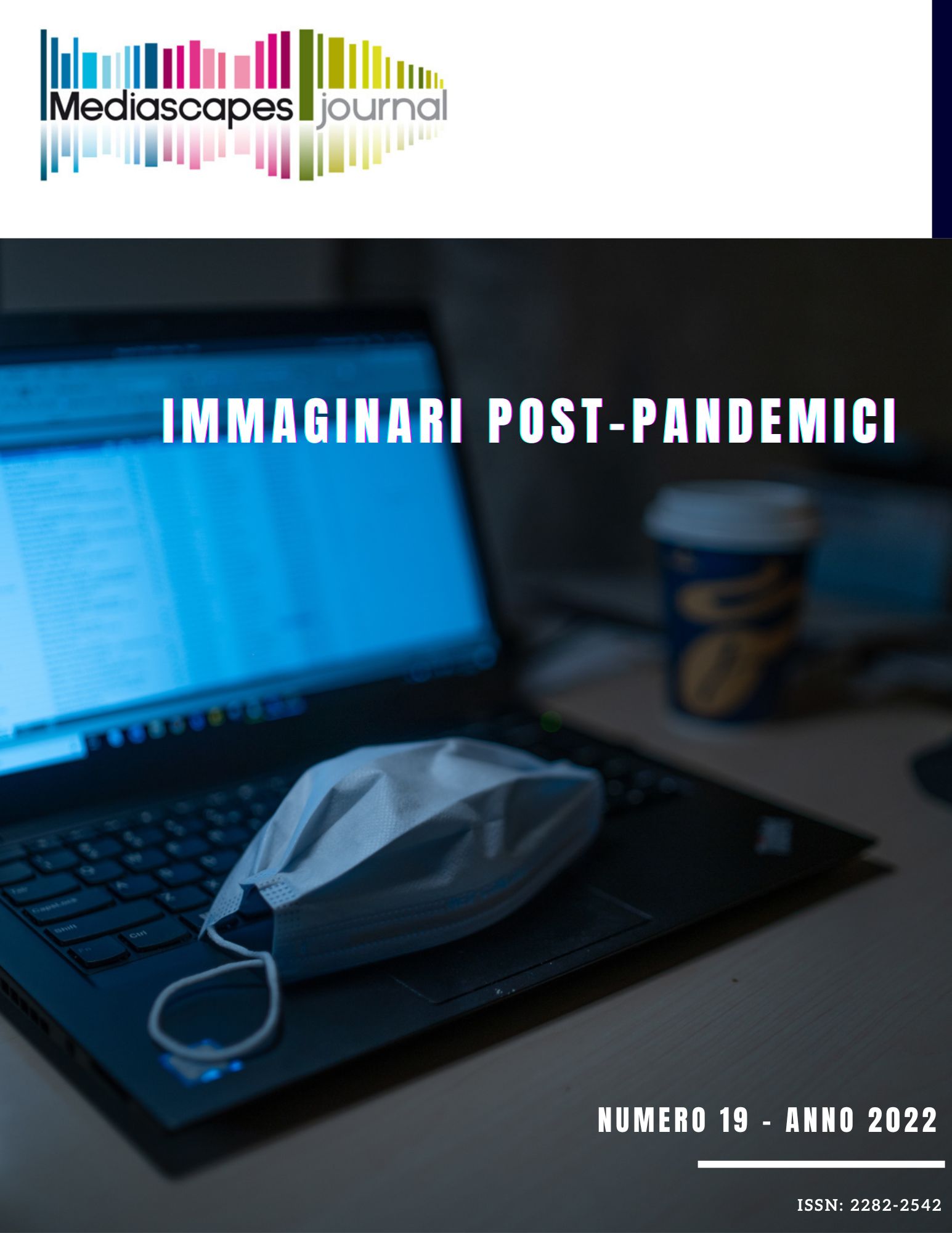Da informativa ad ostile: analisi e profilazione della comunicazione dei leader al tempo del Covid-19
Parole chiave:
comunicazione politica, Twitter, Covid-19, Text mining, Analisi delle corrispondenzeAbstract
The contribution highlights the transformations in the communication strategies of Italian political leaders between the first and second waves of the Covid-19 pandemic, in a broader context of changes in political strategies and contingent political assets. Specifically, the study focuses on the political language adopted on Twitter by seven figures who, due to their political role and popularity, dominate the national political scene during the monitoring period: Silvio Berlusconi, Giuseppe Conte, Luigi Di Maio, Giorgia Meloni, Matteo Renzi, Matteo Salvini and Nicola Zingaretti. Through the combination of the Latent Dirichlet Allocation topic modeling algorithm and multidimensional analysis techniques, the document analyzes and compares the language used in tweets by political actors during the first pandemic wave (March-May 2020) and the second one (September - December 2020). The factorial projections based on the association between leaders and the keywords of political topics allowed to define four types of political communication: informative, propagandistic, demagogic and hostile. The main contribution of this work consists in a combination of statistical techniques to profiling and studying changes in the communication strategies of leaders. The results show that in the first wave - characterized by a perception of disorientation and suspension of judgment - the exponents of the government majority use a communication aimed at providing information and limiting conflicts on the political front, while the opposition actors adopt a hostile communication aimed at bringing their issues back to the center of public debate. In the second wave - when the state of crisis is assimilated, metabolized and normalized within society - the dynamics of fragmentation of the public sphere, typical of the confrontation in the digital media arena, become evident again and the pandemic becomes a new divisive and polarizing within the political debate, in which each party returns to entrench itself on its own ideological positions. Therefore, the main change found is the shift from an informative political communication, based on rational speeches, to a hostile one, based on polemical language aimed at delegitimizing the acts of the government and leveraging the affectivity of the public.
##submission.downloads##
Pubblicato
Come citare
Fascicolo
Sezione
Licenza

TQuesto lavoro è fornito con la licenza Creative Commons Attribuzione 4.0 Internazionale.
Gli autori che pubblicano su questa rivista accettano le seguenti condizioni:
- Gli autori mantengono i diritti sulla loro opera e cedono alla rivista il diritto di prima pubblicazione dell'opera, contemporaneamente licenziata sotto una Licenza Creative Commons - Attribuzione che permette ad altri di condividere l'opera indicando la paternità intellettuale e la prima pubblicazione su questa rivista.
- Gli autori possono aderire ad altri accordi di licenza non esclusiva per la distribuzione della versione dell'opera pubblicata (es. depositarla in un archivio istituzionale o pubblicarla in una monografia), a patto di indicare che la prima pubblicazione è avvenuta su questa rivista.
- Gli autori possono diffondere la loro opera online (es. in repository istituzionali o nel loro sito web) prima e durante il processo di submission, poiché può portare a scambi produttivi e aumentare le citazioni dell'opera pubblicata (Vedi The Effect of Open Access).


